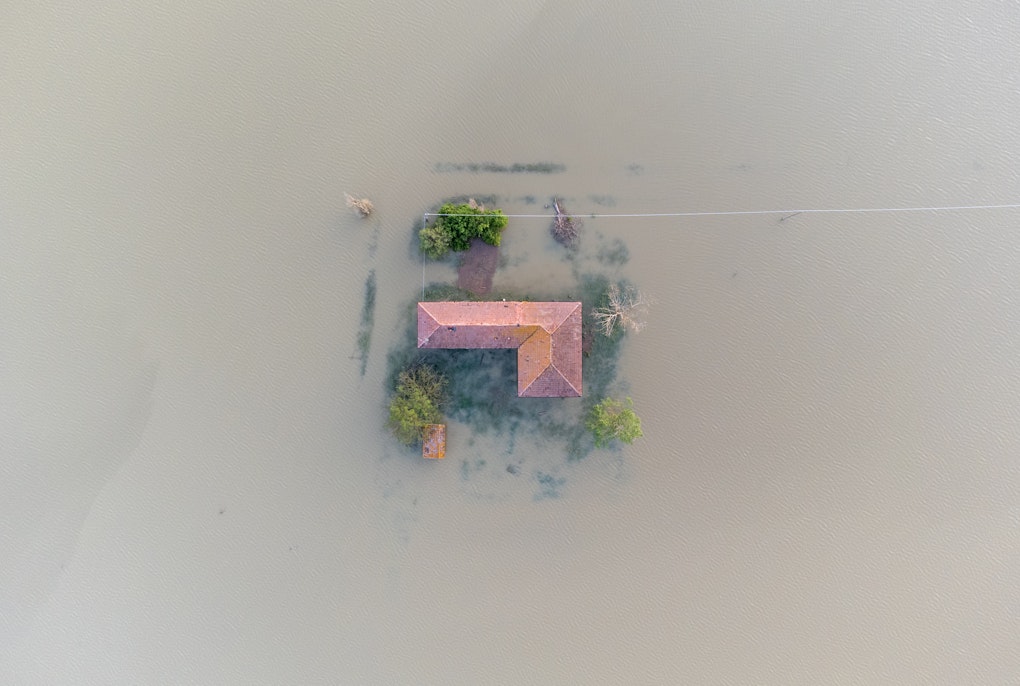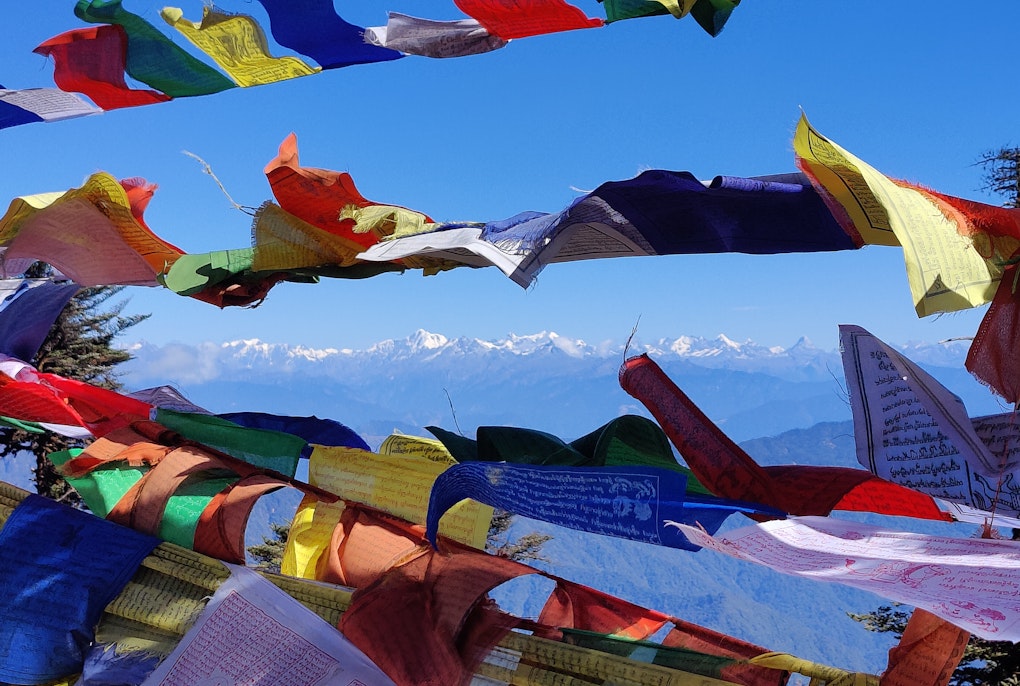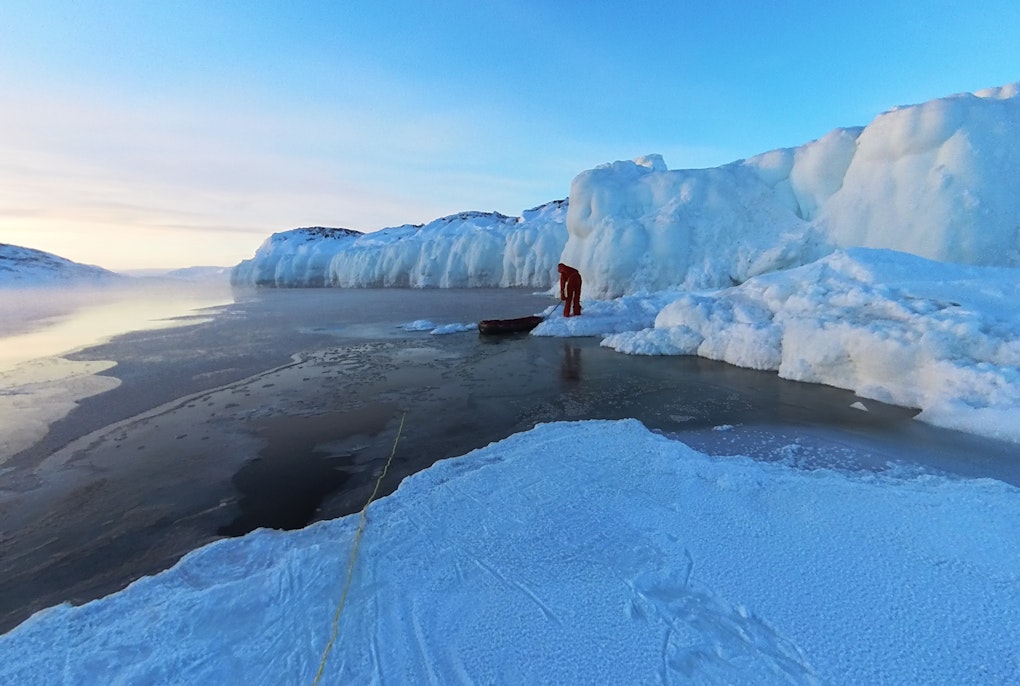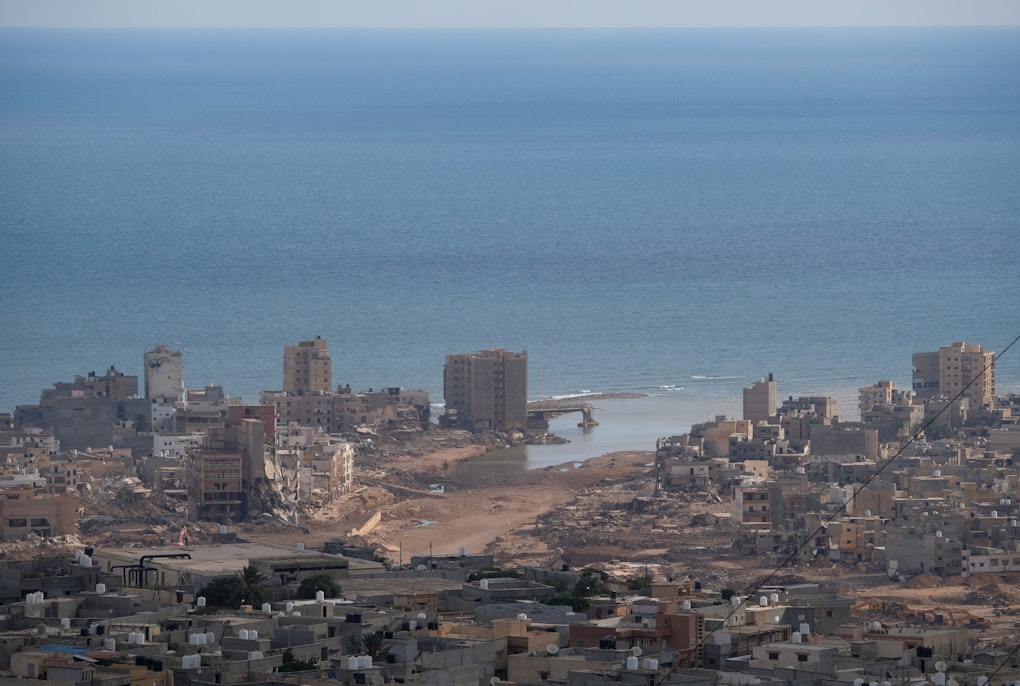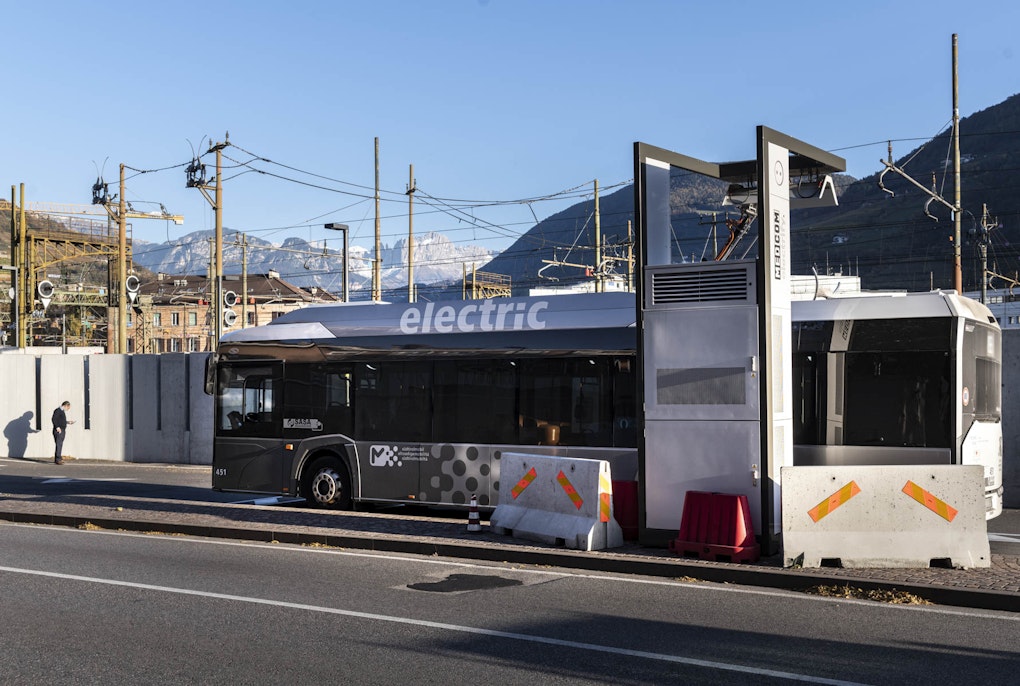magazine_ Interview
"Where do we want to go?"
Conversations between disciplines: interview with director of Eurac Research Stephan Ortner and geoecologist Marc Zebisch.
Biologist and director of Eurac Research Stephan Ortner has drawn a conclusion from the conservation debates of the 1980s and 1990s: science risks its credibility when it meddles in socially contentious issues. Geoecologist and "Scientist for Future" Marc Zebisch believes fine academic restraint is no longer appropriate in the face of the climate catastrophe. The two may disagree on where the line of activism lies, but they do share a conviction: if we want a future worth living, society and science must develop visions together.
Never before has science played such a central role as in the Corona Pandemic. In your eyes, what has changed in the relationship between science and society?
Stephan Ortner: I have not yet come to a final conclusion. In the beginning, of course, science was very popular - just as the fire department is very popular when there's a fire. That subsided, partly because the hope that science would be able to put out the fire in a short time was clearly not fulfilled. In addition, scientists' opinions could be heard in an inflationary manner from morning to night and on all channels, there were different interpretations and seemingly contradictory statements. I don't think most people were able to cope with that. But people were also amazed by the achievements of science: a vaccine in such a short time! That impressively revealed how important basic research is, because without the preliminary work of the past ten or fifteen years, this achievement would have been impossible.
Marc Zebisch: On the one hand, the pandemic demonstrated the necessity of science, especially in its first phase, when the world was suddenly confronted with a crisis beyond any horizon of experience. It was essential to research infection routes, to model the spread of the disease, and to develop a vaccine. Without science, the crisis would really have degenerated into a catastrophe. On the other hand, it has also been shown that a crisis cannot be controlled with science alone. Science provides knowledge and can provide scenarios of the consequences of different paths of action. But it cannot take the decisions away from the decision-makers. It would be wrong to expect science to take the helm.
“In the beginning, of course, science was very popular - just as the fire department is very popular when there's a fire.”
Stephan Ortner
Ortner: In Italy, however, that's exactly what happened: the decisions were made by the Comitato Tecnico Scientifico. And this committee was far too one-sided, I think. The central role was played by virologists, not epidemiologists, although their expertise would have been of greater value in combating a pandemic; sociologists, too, could have probably contributed a great deal in terms of the social dynamics of the crisis. A phenomenon that touches and changes our lives in so many ways must be looked at from all sides, or we will be shipwrecked - that is the great lesson we need to learn in order to overcome the climate crisis.
“Science cannot always provide unambiguous answers; knowledge is dynamic, knowledge changes.”
Marc Zebisch
Zebisch: Indeed, the pandemic has clearly demonstrated the limits of disciplinary science. To explain such complex risks, and even more so to make recommendations for action, you need not only virology and epidemiology, but also economics, sociology, communication science, and psychology. The pandemic revealed yet another limit: science cannot always provide unambiguous answers; knowledge is dynamic, knowledge changes. I think it is essential to communicate this uncertainty. Germany’s leading virologist Christian Drosten, for example, is always very differentiated in his explanations, and if an assumption has proven to be wrong, he says so.
Do scientists today have a better understanding of how the public works?
Zebisch: I think we're only at the beginning. The complex waves and heterogeneous movements of solidarity, panic, fatalism, and resistance, as well as the potential for social conflict, were certainly surprising to everyone: the social dynamics were grossly underestimated. What the public does to scientists is also new; after all, they have been instrumentalized partly into superstars, partly into hate-objects, also by movements. I think we scientists have learned how important it is to involve society in critical decisions.
Ortner: And we have seen how important communication is. Public relations, if we want to call it that, was in part simply miserable during the pandemic - everything was always communicated too late. And then there was the prime minister, who read out pages and pages of paragraphs at nine o'clock in the evening - a lot of things were screwed up. That was probably another reason why social tensions exploded, although I don't want to claim that the polarization could have been prevented altogether. We must also learn from these mistakes for addressing the climate crisis and ask the question: how do we take people on this journey? How do we make them want to go in the direction we need to go in?
Zebisch: Moreover, climate change is even more complex as a crisis, because it's not about specific measures, like contact restriction, which was then just a matter of creating acceptance. To deal with the climate crisis, it's not enough for the state to order something - let's say a higher gasoline price - which then people will accept or protest. What we need here is a profound change, a transformation that affects energy systems just as much as social processes, which is why we talk about transformation. And to achieve a better circular economy, it is not enough for people to cooperate in the sense of merely accepting changes: they have to contribute their ideas, take the initiative, develop projects. Transformation does not work as a top-down decision in crisis mode. It's almost the other way around. A lot has to come from the bottom up, it needs the participation, the strengths of everyone. This can lead to something very positive for the individual. For example, if I buy green electricity from a South Tyrolean electricity cooperative of which I am a member, then that's nice, too.
Ortner: We need a more positive outlook. The Corona crisis has changed certain ideas in the minds of many people; there is a greater willingness to question developments that were before taken for granted. Corona may have been the prelude to the great project of climate neutrality. We must win people over to the necessary changes by making their benefits tangible and not through fear. There won't be a flood disaster in Germany every year, or dramatic forest fires in southern Europe so we can't rely on that to get people to act. And sinking atolls in the South Seas, droughts in the Sahel - this suffering is too far away. If we don't want to lapse into fatalism ("as long as the Chinese don't join in, it's no use anyway"), we need a positive narrative.
Zebisch: The next step is to turn narratives into practices and finally into cultures. Climate change is a cultural crisis - culture in the sense of values and learned behaviors. We will only be able to overcome such crises in the long term by changing our culture, and for this we need not only science, but education and participation more than anything.
What role can a research center like Eurac Research play here?
Ortner: We recently launched the research focus "Climate Change and Transformation," which brings together experts from the fields of environment, energy, sociology, regional development, law and economics. They have all been working on aspects of transformation for some time, and now these competencies are being pooled. This means that, on the one hand, the specialized research teams will continue to provide data, check whether previous calculations are still correct, develop forecasts, and so on. Whilst others will deal with how local and regional cycles can function economically so that people do not become socially marginalized and fall through the cracks. We can't just report what we gain from the transformation - people have to share in the gain.
Zebisch: In the past few months, as part of this interdisciplinary research collaboration, we have prepared a study on how South Tyrol can achieve climate neutrality by 2050 at the latest. We are also preparing a web portal that will not only provide annually updated indicators on climate change and its consequences, but also on climate protection and climate adaptation measures. There is a need for new research, particularly in the area of societal response and participation as well as the effectiveness of specific climate protection and climate adaptation measures. At the same time, it is important that research institutes offer spaces where science, politics, economy, and civil society can work out ways of dealing with emergencies such as the climate crisis. Places where people can discuss these questions together. Where do we want to go? And how are we going to get there? Also, to understand how difficult it actually is to implement things, simply because the system is so sluggish. You can't totally transform a city like Bozen-Bolzano in ten years, because there are a large number of unrenovated buildings and pragmatic limits to how quickly you can renovate houses. That's where it's important to show practical paths.
Ortner: I agree, we should take the time for open debates across disciplinary boundaries. We should detach ourselves from the pressure of immediately having to develop a project and acquire third-party funding for it. After all, such funding runs through certain funding channels, which then go in a certain direction. If you want to develop something completely new, it's not so easy to find sources of funding.
Zebisch: In the normal day-to-day life of a scientist, you're very much caught up in this research machine: writing proposals and reports, managing projects ... You never get a chance to think through a larger topic with colleagues from other disciplines. I hope that the cross-institutional research focus will open up new possibilities.
When it comes to climate change, many scientists have moved from a neutral, distanced position to one of more active involvement - "Scientists for Future" is an expression of this. Mr. Zebisch, you are one of the founding members in South Tyrol, is the understanding of your role changing?
Zebisch: Yes, definitely. On the one hand, scientific methods have expanded into the field of action. It is no longer just a matter of understanding a phenomenon - such as the spread of the corona virus or climate change - but also of using scientific methods to investigate what options there are for action and what the consequences of each would be. Thus, the demand to limit warming to 1.5°C and to achieve climate neutrality by 2050 at the latest, is the result of scientific calculations. This scientifically-based goal was then made binding under international law. If I, the scientist, see that the measures adopted so far, are in no way sufficient to achieve these legally binding targets, I believe it is a matter of responsibility to state this clearly. "Scientists for Future" do not make demands, that is explicitly stated in their charter; they were founded as scientific support for "Fridays for Future". And if "Fridays for Future" had not been so active, then politics would not have been so intensively concerned with climate protection over the past five or six years. Because before that, in 30 years of the IPCC, the United Nations Climate Council, almost nothing really happened, and this inactivity will fall heavily on our shoulders. It is also the frustration about this that is causing many in today’s scientific community to voice their warnings more forcefully.
Ortner: I think you walk a fine line as a scientist. Anyone who takes a stand runs the risk of being put in a box, of being instrumentalized. You have to be aware of this danger.
Take the corona crisis for example, some virologists might act more cautiously today; in some cases, their views were completely misused for political purposes - those who spoke out in favor of fewer restrictions were taken over by the right-wing camp, and those who argued for caution were claimed by the left. You are then exposed to these dynamics, and it is not easy to come out unscathed. I observed this in the great conservation debates of the 1980s and 1990s: Some experts who crossed the line into activism gambled away their credibility. And in the end, they may have done more harm than good.
Zebisch: My principle as a scientist is that I make my expertise available to anyone who asks me. In South Tyrol, these requests arrive from "Fridays for Future" as well as local associations like the South Tyrolean People's Party (SVP), IDM South Tyrol, the Alpine Club or the Entrepreneurs' Association. There is so much initiative coming directly from society itself! I see a lot of potential and competence there.
Ortner: This is indeed a striking difference from the environmental movements of the past: Nature conservation was always in opposition to the economy, and it took a long time for the general public to understand that it was right not to build another ski area, but to set up a nature park instead. This time, hopefully, we will be much quicker in succeeding in changing points of view. This also means that we will develop a sharper eye for our surroundings, even for the small things. The many lockdowns have taught us that there is plenty of adventure on our doorsteps; there are so many new things to experience in nature, such a variety to discover. The topic of biodiversity is particularly exciting. It's up to us to communicate these things to young people, to create offerings. Young people are receptive to this. Today, children often say of their own accord: "No, Dad, we're not going on vacation by plane.”
Stephan Ortner
Stephan Ortner loves natural science and music and studied both biology and classical guitar. Giving research visibility in South Tyrol has gone from being his vision to his life's work. As director of Eurac Research, he has been doing just that, day after day for over 25 years. In his private life, the late-career daddy prefers to be challenged by his three children, who never cease to surprise him.
Marc Zebisch
Marc Zebisch is a geoecologist and the head of the Institute for Earth Observation at Eurac Research. He holds a PhD from the Potsdam Institute for Climate Impact Research and the Technical University of Berlin and has been involved in climate impact research and climate risk assessment for almost 20 years. In 2022, he was particularly excited about the Vereinigte Bühnen Bozen theater project ANTHROPOS Tyrann (Oedipus), in which he and other scientists from Eurac Research participated; the production confronted the subjects of climate change, responsibility and the art of becoming lichen.
Knowledge for everybody. 18 open lectures on sustainability
At 6pm on Nov. 16th, Marc Zebisch will give an open lecture as part of the Series of Lectures on Sustainability series at the Free University of Bozen/Bolzano. The theme of the lecture is "Climate Change, Climate Crisis or Climate Catastrophe?"
The lecture series is organized by the Alliance of Research and Education for Sustainability in South Tyrol. In the framework of the alliance, several South Tyrolean research institutes joined forces to address important aspects of sustainability and, above all, identify solutions to present and future challenges and issues. Those involved include the Free University of Bozen/Bolzano, Eurac Research, the Academic Theological Studio, the Laimburg Experimentation Center, the Natural Science Museum of South Tyrol, eco-research, the Ökoinstitut, and Fraunhofer Italy. IDM is also a partner. More information is available on the Alliance for Sustainability website.


